How to cope with a childhood cancer diagnosis in the family
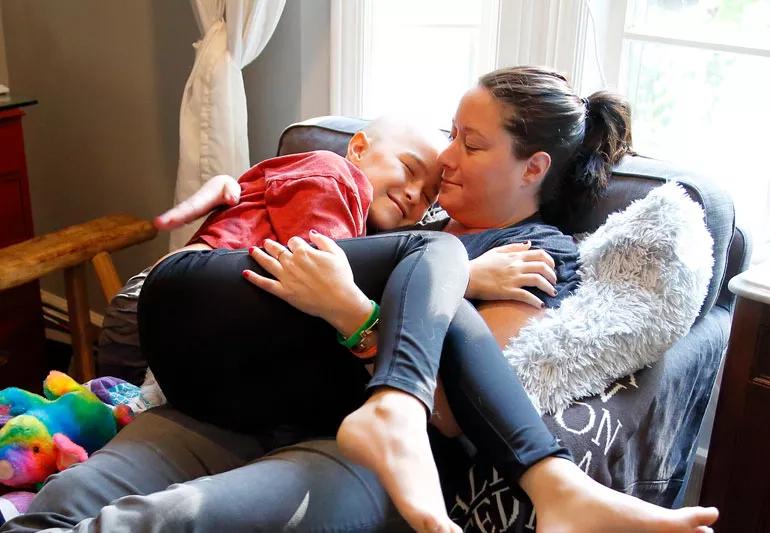
It doesn’t seem fair. Childhood should be filled with laughter, games and play. Being a kid shouldn’t include things like surgery and chemotherapy. But unfortunately, childhood cancer is the reality that many families face.
Cleveland Clinic is a non-profit academic medical center. Advertising on our site helps support our mission. We do not endorse non-Cleveland Clinic products or services. Policy
Sadness, denial, grief and anger wash over parents when they learn the news of a child diagnosed with cancer. And these feelings don’t just stay between the parents – it spider webs out and affects other family members, friends and the community.
“The moment you hear cancer, you don’t ever go back to normal – this is the new normal now,” says pediatric oncology social worker, Taylor Buss, LISW. “But families should know they’re never alone on this journey. It’s OK to lean on your care team. We have resources and we’re ready to help.”
When someone is diagnosed with cancer, a full medical care and support team is established around the patient – and this is especially true when a child is diagnosed.
Social workers, child life specialists, psychologists, doctors and nurses all work in harmony and directly with your family and child. This group of experts have been specially trained to help a child cope with cancer. From knowing how to talk to your child about port needle access, to explaining how to sit in a chemo chair, to learning how to be comfortable with physical exams – these experts can help your child not be so afraid.
Pediatric oncologist Stacey Zahler, DO, says parents and family members should feel like they can go to their care team for advice. “There’s a reason we’re available 24/7 for the family,” she says.
Dr. Zahler and Buss share tips for facing a childhood cancer diagnosis:
Have open and honest communication with your child – Use the word cancer and the correct terminology when you’re referring to things such as surgery or radiation. You might not tell the outlook to the child, but as far as diagnosis, be as open and honest as you can about what’s going on.
Kids typically know more than you think they do. They can pick up on emotions or if people around them are being secretive. Withholding information can cause feelings of betrayal. Kids can get scared if they hear things like blood work and surgery, but if you explain it to them, it will help them feel more comfortable.
Find ways to explain things in a way that your child will understand –Your care team can help you figure out how to explain things so your child will better understand what their cancer actually means. Sometimes that means using a doll or stuffed animal to explain what area of the body your child’s cancer is. Experts have helped children understand a tumor by naming it and referring to it by its name. Other times, explaining to the child that their blood or bones are sick is helpful with leukemia or sarcoma diagnosis, for instance.
It’s also important to speak to your child about treatment. You can explain that they’ll need medicine to help them feel better, but it might make them feel pretty sick at first. A doll can also serve as a tool for explaining surgery in simple terms. Assure your child that you’ll get through this together and that everyone’s goal is to help them feel better.
Sometimes, treatment can change throughout a diagnosis too. That’s why it’s even more important to maintain open and honest communication about what’s going on.
Lean on support and find your tribe – If you’re struggling with how to talk to your child about their cancer, the team can be present or give you tips. You don’t have to go through this alone, so lean on your team to help decide what’s best. That’s the whole reason they’re there – to help you and your child get through this. The team can also recommend support groups and help connect you with people who are going through similar things. They can help you reach out to the community, a church or a foundation. Or they can offer advice or an ear when you need to talk.
Know that it’s ok to show emotion with your child – When you’re given bad news, especially about your child, it’s natural to want to protect them so they don’t feel upset too. You might also be tempted to put on a brave face and mask any emotion so they don’t see mom or dad feeling sad.
But the truth is, it’s ok to acknowledge your feelings with your child. A lot of times, parents don’t want to cry so they don’t scare their child, but kids are smart and can often pick up on stuff, especially big emotions. Showing your own emotions allows your kid to feel like they can share theirs too. It’s also ok to say that you don’t know the answer or the reasoning behind something. Assure them that you’ll try to find the answer and let them know.
“Often at the beginning of the diagnosis, parents will be fearful of revealing too much information to their child,” says Dr. Zahler. “But after we talk about why it’s so important, they come around pretty quickly.”
Older kids and cancer
“Older kids typically understand more with cancer because they’ve usually heard of someone else who has had it before,” explains Buss. “But they’ll need to learn about their cancer and why they might need different treatment.”
Sometimes older kids have a hard time coping with missing out on sports, school and seeing their friends. It’s not so much about the cancer itself, but the possibility of missing out on other things.
In this case, it’s important to help your child understand that you know they’re frustrated and validate their emotions. Tell them that you know they’re upset about missing out on being with friends. But also assure them that everyone is committed to helping them get better.
It’s also important to know that once a child becomes a certain age (usually seven or older) they need to consent with their treatment. Older kids should be asked about proceeding with a treatment and feel that their opinion matters.
And because childhood cancer is still rare and not well-understood, research studies might be involved in your child’s care and could require an agreement from mom, dad and the child.
Younger kids and cancer
There is sometimes anxiety with younger kids diagnosed with cancer because they’re struggling to understand. Sometimes they think they did something to cause their cancer or that their parents are mad at them for something. Younger kids also tend to worry about their parents not coming back for them after treatment or that they’re contagious.
This is another reason why it’s so important to make sure that your child knows what’s going on or has some sort of idea, even if they’re very young. Assure your child you’ll be with them each step of the way.
“Even if it’s a two-year-old undergoing chemo, the child should know, in terms they can understand, what they’re going to go through and why,” explains Dr. Zahler. “Otherwise it might be more difficult to get through each treatment regimen if they don’t know what’s happening or what to expect.”
And be prepared for your child to ask questions in return. Children are naturally curious and want to know what’s happening. They might ask: “Why do I have to have this done?” or “What will this feel like?” It’s important to answer their questions to help them understand.
“Physically getting down to the level of the child is also important to better connect,” says Dr. Zahler. “Getting down to the child’s level makes it less intimidating, and allows for him or her to gain your trust more easily.”
If your child has to stay in the hospital for a long period of time, bring items from home to help make it look more familiar and safe. Bring pictures, stuffed animals, blankets and games to make your child feel more comfortable. And encourage visits from family and friends if it’s approved from your medical team.
Talk to your child’s care team about programs to help ease your child’s boredom or discomfort. Music, art and other therapy programs can help distract your child from what may seem like endless cancer treatment.
The end of treatment is usually met with a short feeling of relief, and then quickly flooded over with anxiety about remission and moving forward.
“We work with families to tell them that it’s ok to have that worry, but it’s not ok to live there,” says Buss. “Your care team can provide resources, support groups and programs to help your child and your family move forward into survivorship.”
Learn more about our editorial process.
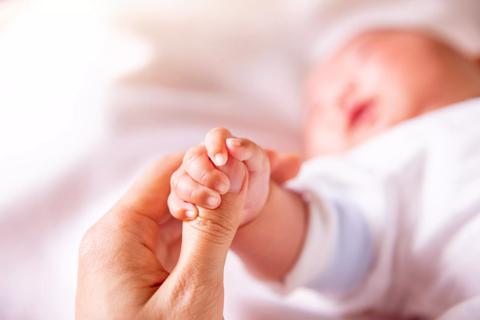
Lanugo — the soft, fine hair that develops in utero — is harmless and will shed within a few weeks
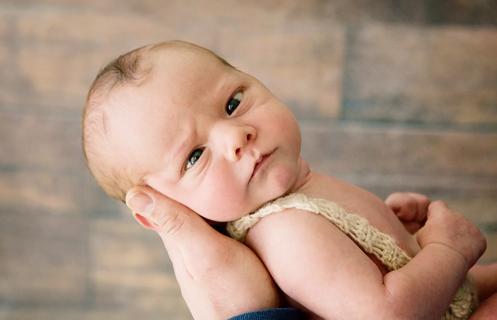
Crossed eyes in a newborn are fairly common, typically harmless and usually go away
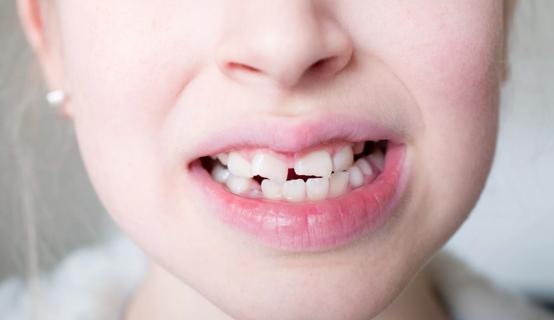
A dental emergency, quick action is key to preventing long-term damage

Severe and debilitating headaches can affect the quality of your child’s life

When breastfeeding doesn’t go as planned, you may need to supplement with formula or donor breast milk — and that’s OK
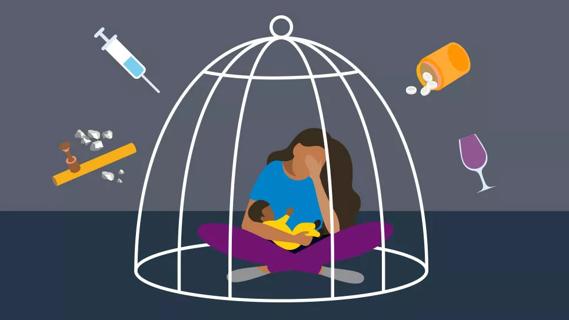
Neonatal opioid withdrawal syndrome, or NOWS, can develop when a birthing parent uses opioids, nonmedical drugs or even some prescription drugs during pregnancy
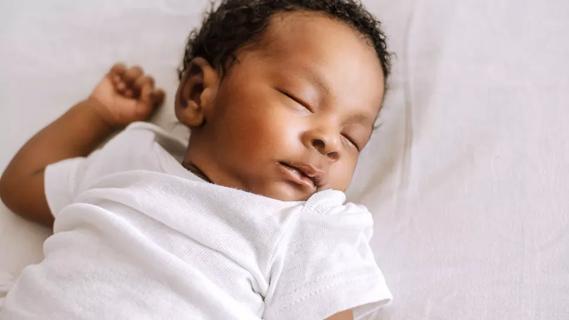
Your baby needs to able to roll in both directions before they can make the switch

Your metabolism may torch 1,300 to 2,000 calories daily with no activity

A gentle touch in all the right places may help drain your sinuses